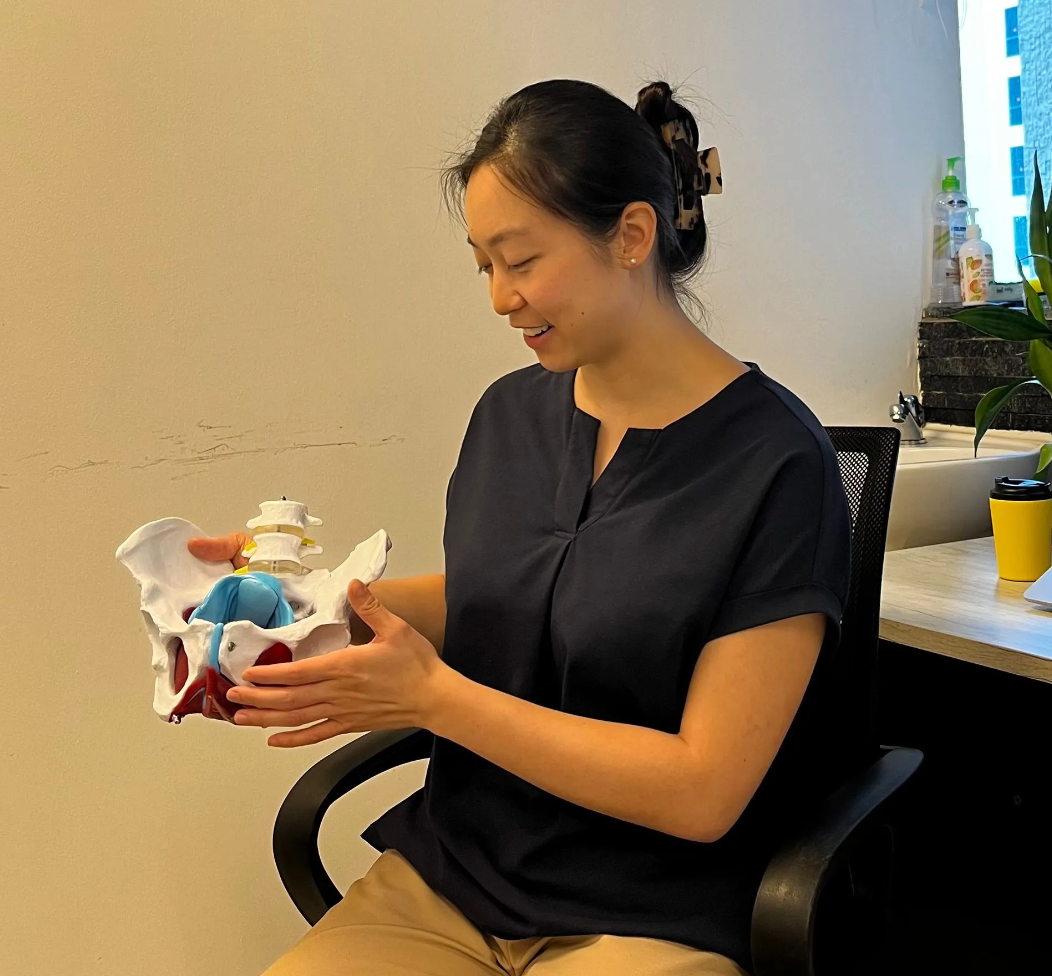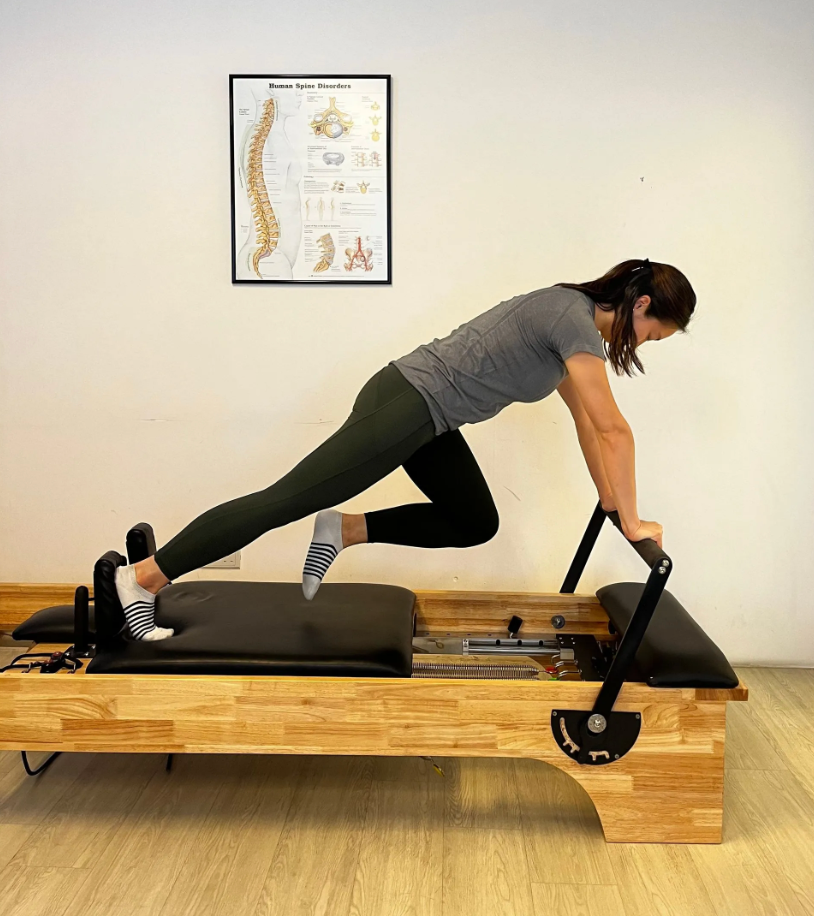
How Women's Health Physiotherapy can benefit You
with Edge Healthcare
September 2023
Physiologically, every woman goes through many changes in her body throughout her lifespan. From adolescence, young girls start their monthly periods, which continue throughout adult life. During her reproductive years, women continue to experience hormonal fluctuations with their monthly periods. Further changes happen during significant stages of life including pregnancy, birth and menopause.
Women’s health encompasses a broad scope of conditions and life stages. A women’s health physiotherapist has gone through additional training to understand the changes that women experience over their lifespans so that holistic treatment can be designed for each individual.
Regardless of where you might be in life, a women’s health physiotherapist can help you prevent, assess, and treat musculoskeletal conditions. In particular, this article will focus on how physiotherapy can help you during your childbearing years.
Incidence -
Did you know?
- Lower back pain or pelvic pain can affect up to 84% of women during pregnancy.
- Carpal tunnel syndrome can affect up to 62% of women during pregnancy.
- Post-partum, 33% of women are affected by persistent abdominal separation (rectus diastasis).
- During pregnancy, 41% of women may experience urinary incontinence.
- As more women become pregnant later in life, the incidence of complications during or after pregnancy also increases.
As of 2020, the Australian and New Zealand Society of Obstetricians and Gynaecologists recommended that women with uncomplicated pregnancies should participate in regular aerobic and strength conditioning exercises during pregnancy. Studies have demonstrated that exercise during pregnancy can reduce the risk of developing gestational diabetes by 38%, reduce the risk of developing gestational hypertension by 39%, and reduce the risk of a woman developing pre-eclampsia by 41%. However, despite most health professionals now supporting the benefits of exercise during pregnancy, less than 30% of women receive advice on this or know how to monitor for appropriate intensity and type.
How can physiotherapy help in your childbearing years? When should you see a woman’s health physiotherapist?
Before pregnancy, it is recommended to do a baseline assessment of your pelvic floor function to make sure your bowel and bladder habits are optimal. Any muscle imbalances in the body or weakness in pelvic floor muscles can be addressed early, to promote a smooth pregnancy. Prevention is better than cure!
During pregnancy, physiotherapists play a role in the prevention, assessment, and treatment of musculoskeletal dysfunction related to pregnancy. Some common conditions include neck pain, lower back pain, pubic symphysis pain, and sacroiliac joint pain. In addition, physiotherapists help prevent and manage pelvic floor dysfunction (such as urinary stress incontinence). Pelvic floor muscle training during pregnancy has been shown to reduce the risk of developing incontinence by the third trimester.
Current guidelines recommend that women with normal pregnancies should target to achieve 150-300 minutes per week (30-60 minutes, 5 days a week) of physical activity. However, exercise prescription for pregnant ladies needs to be appropriately modified and must consider the stage of their pregnancy. A physiotherapist can help advise on how to exercise safely during pregnancy and can help customise a home exercise programme to meet your individual goals.
After pregnancy, we recommend that every new mum should attend a postnatal physiotherapy checkup 6 weeks after giving birth.
During this assessment, your abdomen will be screened for any rectus diastasis. If present, a customised home exercise programme will be prescribed. For Caesarean births, a physiotherapist can also guide you with your post-op recovery.
Through the course of pregnancy, the pelvic floor is placed under a lot of stress (and in the case of vaginal birth: possible trauma). These can lead to pelvic dysfunctions (eg: urinary incontinence, prolapse). At your post-partum check-up, your pelvic floor muscles will be assessed by Real Time Ultrasound (RTUS) imaging, to ensure that they are functioning optimally. Early intervention will be critical at this stage.
Musculoskeletal pain is common as a result of infant care (breastfeeding, carrying baby, etc.). Physiotherapy can help you with pain relief and appropriate exercises to better alleviate the stresses your body is experiencing.
If your longer term goals include resuming physical exercise, a customised postpartum exercise programme will help you regain strength and function.

What is the role of real-time ultrasound (RTUS)?
Your pelvic floor muscles are key in supporting bladder, bowel, and sexual function. Pelvic muscle floor training (Kegels) can help improve urinary stress incontinence and has been shown in research to reduce symptoms of pelvic floor prolapse.
A RTUS machine can help you visualize your pelvic floor muscles, and guide you to correctly engage the right muscles in a non-invasive and safe way. To avoid any risks to your baby, pelvic floor training guided by the RTUS is only performed before pregnancy or post-partum, and not during pregnancy.

Summary:
If you are experiencing any musculoskeletal issues (including urinary leakage upon coughing or sneezing), or you want to learn about safe exercise during pregnancy, you can consult a women’s health physiotherapist who can assess your condition and advise accordingly. If you are suffering from any of the conditions mentioned above, please don’t suffer in silence.
Elizabeth is a Senior Musculoskeletal and Women’s Health Physiotherapist at Edge Healthcare. To book a consultation, please reach out to Edge Healthcare

Bio: https://www.edgehealthcare.com.sg/elizabeth-boey/
Contact us here:
IG: @edgehealthcaresg
FB: Edge Healthcare
#osteopathy #physiotherpapy #womenshealth #sgmoms #backpainrelief #sghealth #fitnesssg#sgrunners #movementtherapy #healthyliving #postnatalcare
References:
The Royal Australian and New Zealand College of Obstetricians and Gynaecologists. Exercise during pregnancy. The Royal Australian and New Zealand College of Obstetricians and Gynaegologists. https://ranzcog.edu.au/RANZCOG_SITE/media/RANZCOG- MEDIA/Women%27s%20Health/Statement%20and%20guidelines/Clinical-Obstetrics/Exercise-during-pregnancy-(C-Obs- 62).pdf?ext=.pdf Published March 2020. Accessed 10th September 2020.
